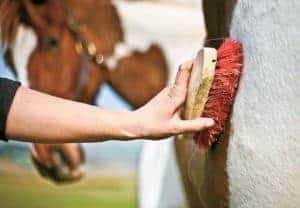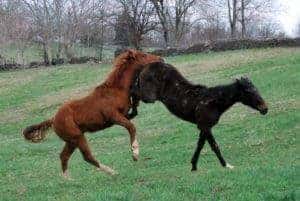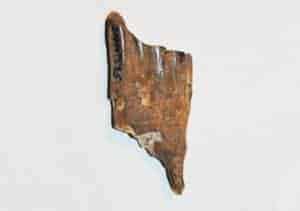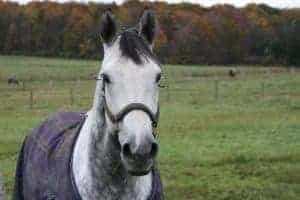
Gene Mutation: No Performance Effect in Coldblooded Trotters
The “Gaitkeeper” gene mutation has been linked to success in trotting races in Standardbreds.


The “Gaitkeeper” gene mutation has been linked to success in trotting races in Standardbreds.

Riders evaluated exhibited an average of six dangerous behaviors in a single grooming session, researchers found.

Dentistry—including balanced alignment of the teeth and jaws—is an important part of good horse health and welfare.

Researchers have learned that horses and humans tend to align their physiological responses to emotional stimulation.

An “athletic” heart is a heritable characteristic linked to good endurance performance, researchers confirmed.

Deborah Bardo, MSc, has been charged with overseeing horse welfare within the French Equestrian Federation.

Horses’ RNA could contain clues about even the sneakiest substance abuse cases, researchers have learned.

The most common fracture sites in competition and leisure horses were the medial splint bone and the head.

Out of nearly 1,000 randomly chosen horses, 85% had at least one hoof disorder visible during a regular farrier visit.

However, more severe bleeding in the lungs was significantly associated with decreased racing performance.

Researchers can now detect more than 90% of the chromosomal abnormalities in horses, including sex reversal syndrome.

After four weeks of resistance band training, horses showed less unwanted vertebral movement along the back.

Researchers say horses can carry EIA’s causative virus for up to two years without a blood test returning positive.

Researchers recently discovered the first reported mandibular (cheek tooth) hook in a medieval horse.

Researchers hope to help equestrians polish skills on a simulator to ensure good equine welfare when they ride a horse.

Half the owners didn’t understand equine thermoregulation, including horses’ bodily response to clipping and blanketing.
Stay on top of the most recent Horse Health news with